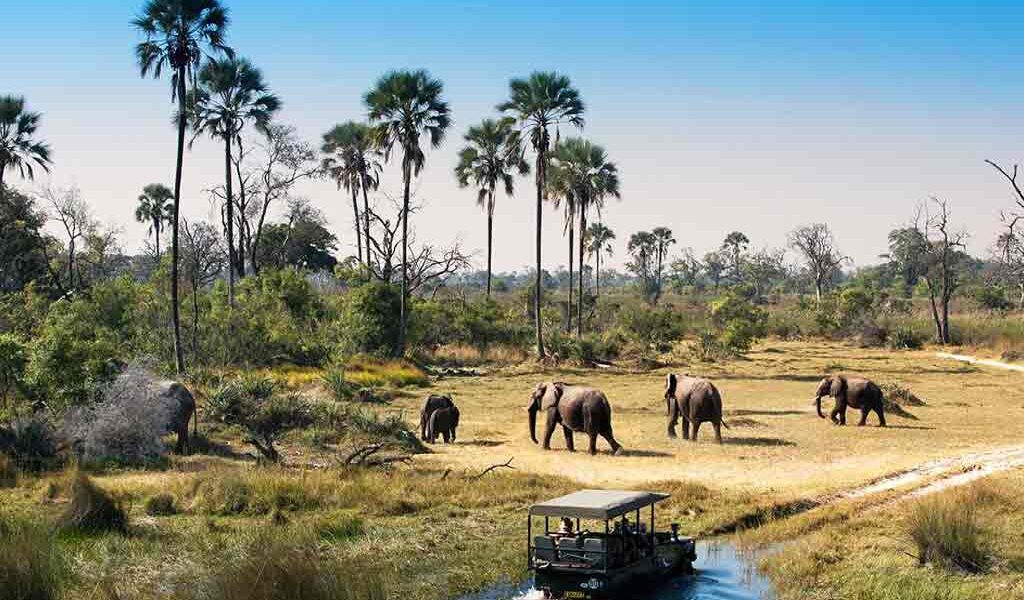- 82% of the accommodation facilities owned by foreigners
- Wilderness owns 22 lodges, the most by any tourism company
- “Due to its weak linkages with the domestic economy tourism industry is failing to significantly contribute to rural development in Botswana.”- UB study.
TSHIAMO TABANE
Foreign-owned safari companies and investors continue to dominate Botswana’s tourism industry, a development which is encouraging repatriation of tourism revenue, domination of management positions by expatriates and lower salaries for citizen workers, a new study by University of Botswana Okavango Research Institute has confirmed.
The study conducted by the leading researcher from the institution, Professor Joseph Mbaiwa has revealed that 53.8% of accommodation facilities in this country are 100 percent owned by foreign safari companies while around 28% is jointly owned between Botswana-owned and non-citizen companies, leaving just 18.5% fully owned by Botswana citizen companies. The study explained that the figures means foreign companies and investors have an influence in about 82% of the accommodation facilities in the tourism sector.
Data on tourism operators offering high-end accommodation in Botswana’s wilderness areas, shows that Okavango Wilderness which has 22 lodges owns the highest number of tourism accommodation facilities, followed by Okavango Explorations & Beyond which owns 9 lodges, Desert & Delta safaris, Kwando Safaris which own 7 lodges each while Ker & Downey owns 6 lodges, followed by Lodges of Botswana which has 5 lodges, Gametrackers and Johan Calitz safaris which have 4 lodges each, Crocodile Camp safaris (3 lodges), Island safaris (2 lodges) while the remaining 14 lodges are owned by independent companies with one lodge each. According to Mbaiwa most of these companies are foreign owned and do not have headquarters in Botswana. “In prime tourism areas such as the Okavango Delta and Chobe regions in Botswana, studies have shown that tourism sector is predominantly owned by foreign companies and investors, who derives more benefits, particularly with regard to incoming tourism revenue,” said the researcher.
The researcher indicated that the 1990 Tourism Policy, coupled with government’s liberal foreign investment policies, created conditions in which citizen companies and investors are economically disempowered as they cannot compete with international tourism companies. “For example, citizen companies often fail to win tenders in prime tourism concession areas due to the limited skill, experience and capital they have in the tourism business when compared with foreign companies.” The Tourism Studies lecturer stated that the tourism policy and its associated policies are laying the foundation for the development of a tourism industry largely owned and controlled by outsiders. “While investment by the international companies managed to create jobs for local people in wilderness areas like the Okavango Delta and Chobe region, better paying jobs and managerial positions are ‘reserved’ for expatriate workers, with the majority of citizens holding low positions which attract lower salaries. This again shows that issues of social equity, where all stakeholders have access and benefits from the resources around them, are not adhered to. From this perspective, it cannot be argued that the Tourism Policy adheres to the principles of sustainable tourism development,” said the lecturer.
The study indicated that due to its weak linkages with the domestic economy, the booming tourism industry is failing to significantly contribute to rural development in Botswana. According to the study, the airline industry and accommodation industries, the two primary sectors which generate substantial tourism revenue are largely owned by foreign companies which process payment for services outside Botswana.
“Most high-end tourist accommodation is paid out as part of a package deal in the tourists’ home countries. This means that tourists do not necessarily spend much in Botswana as they fly into the country and are immediately shuttled out to wilderness areas either by small aircrafts or by vehicle. Most of the tourists who stay in luxurious accommodation facilities in the Okavango Delta, Chobe, Makgadikgadi and Central Kgalagadi game reserves do not interact with locals or visit local businesses to spend money. In this regard, it is difficult for much of the tourism revenue to be retained in Botswana,” reads the study report. The report stated that more than 70% of Botswana’s tourism revenue is being repatriated to parent countries of foreign-owned tourism companies, especially those operating in Botswana’s prime tourism areas.
The study added that a more locally owned accommodation sector within Botswana’s tourism industry would significantly increase net foreign exchange receipts for the country.

